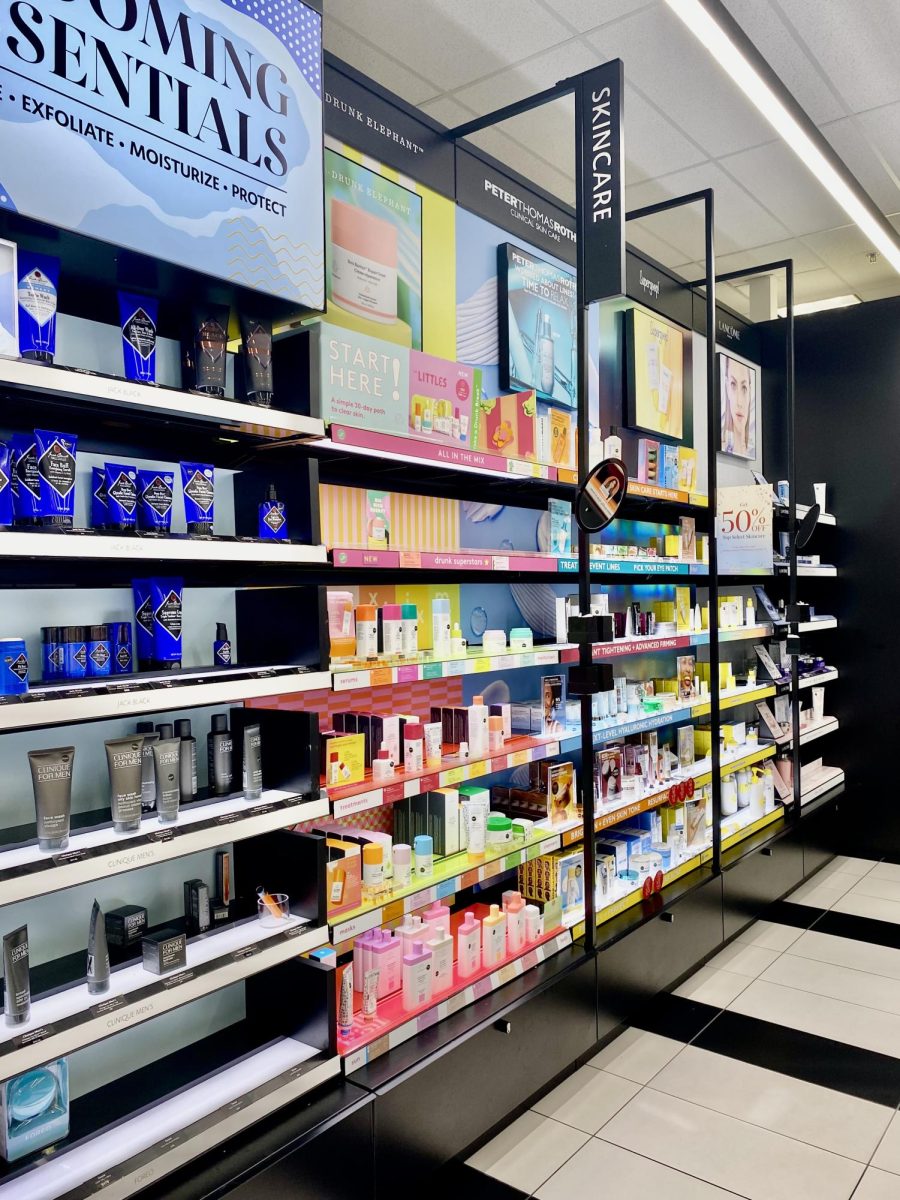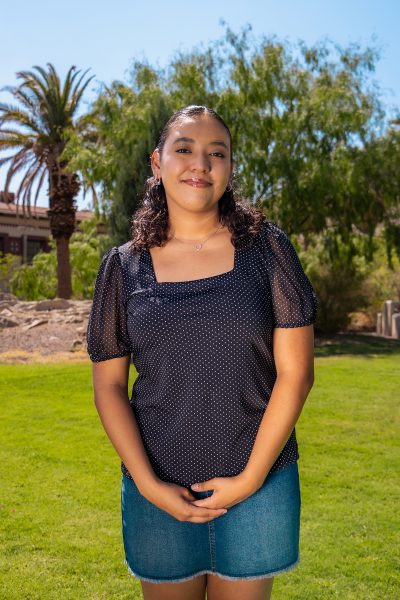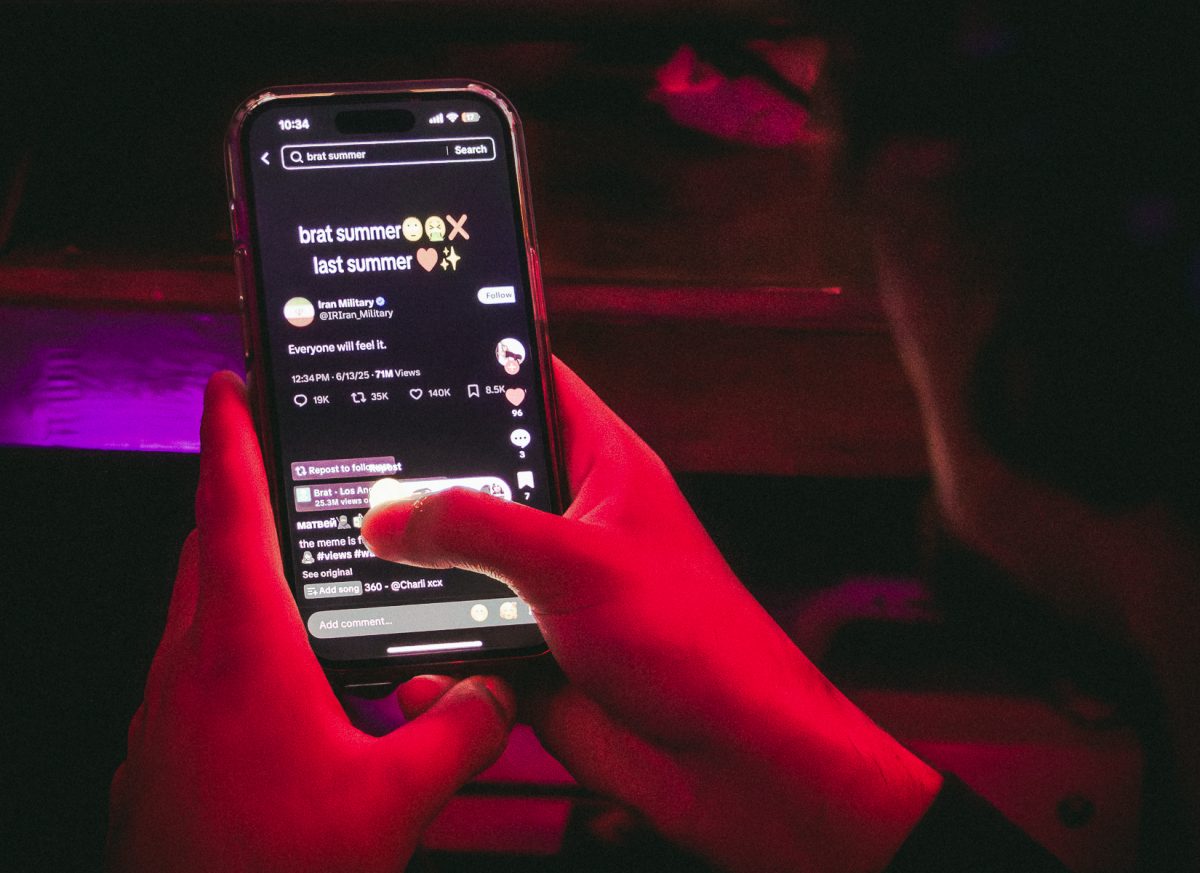A few years ago, stores like Claire’s and Justice used to be filled to the brim with young girls running around, begging their parents for children’s make-up to play in. Recently, young girls scrapped the idea of playing pretend and began purchasing real and potentially damaging skin care and make-up products.
A popular conversation on social media recently surrounds young girls not buying from age-appropriate brands. So why are girls younger than 18 attracted to products they do not need when their skin has not matured yet?
Some say this issue stems from social media and lack of unrestricted screen time.
Sephora and one specific brand the store carries called Drunk Elephant, has a range of skin care, hair care and body care. Employees, customers and parents are expressing their concerns over young girls selling out the Drunk Elephant section.
Retinols and acids are a couple of chemicals in products that are a cause for concern for younger skin. As young kids spend more time online and have unrestricted access to social media, they are watching content that is usually catered towards adults. They get to see their favorite influencers do “get ready with me” videos and use advertised skincare and make-up products.
El Pasoans and UTEP students had varied responses on whether they thought social media and influencers were responsible for the actions of teens or younger people using products they do not need.
“They had no idea this was going to be an issue with young kids, they are just doing their jobs,” said El Paso resident Hennessy Cruz
Others think that there are instances where influencers do share some of the responsibility.
“Influencers have some fault because they know their audiences, and sometimes still choose to promote a product that isn’t age appropriate or doesn’t relate to them,” said UTEP student Glenda Bueno.
When asked if the businesses and brands had any responsibility or if there was anything they could do to move towards a solution, there were suggestions like advisories, warnings, or age restrictions on certain products.
“It’s a sad reality we have to face, but I believe luxury products will have to be locked up,” said El Paso resident Bailey Kukkola.
The question opened a conversation about whether businesses would even consider these types of solutions.
“I doubt that brands would care to add age restrictions, and even if they somehow agreed to it, kids will always find a loophole somewhere or get products by other means,” said UTEP student Andrea Tellez.
Blame was also placed on parents and guardians of children purchasing these products. Many believe that it is the parents’ responsibility to monitor what their child is watching and what is age appropriate for them to watch and buy.
“At such an impressionable and formative time in their lives, they want to emulate the people they are seeing on social media which has led to this problem,” said UTEP student Angel Uranga. “Parents also usually enable these children to buy the products with their money. I think that parents need to look into what they’re buying for their kids and learn how to tell them no. Parents also need to limit screen time and make sure their kids are not trying to emulate influencers.” Uranga said.
The consensus of many responses was that every party shared responsibility, and that this is a “pointing fingers” situation. Whether the fault lies in social media and influencers, businesses, parents and unrestricted screen time or all these factors combined, most people agree that a realistic and effective solution must be made to protect the youth as society faces this virtual reality.
Ximena Cordero is a staff reporter and may be reached at [email protected]












